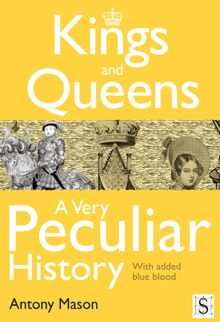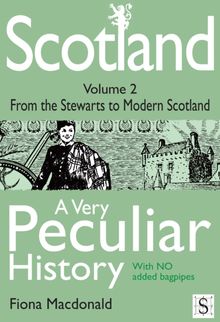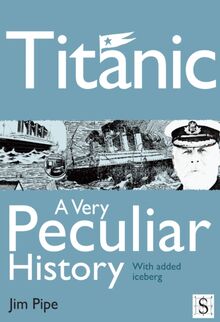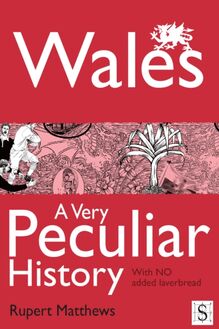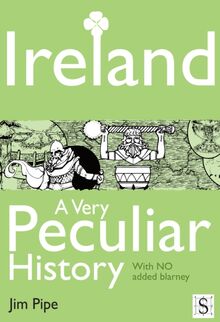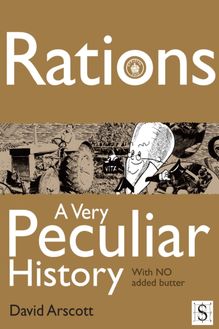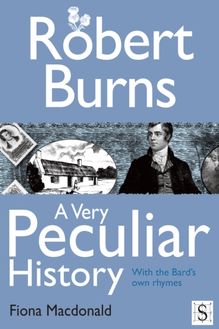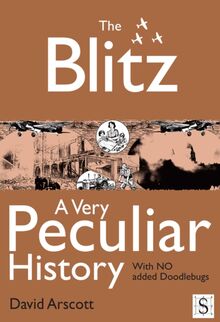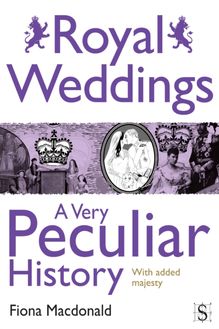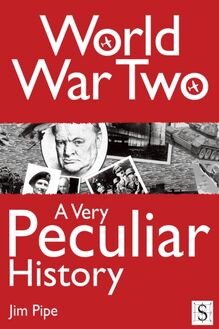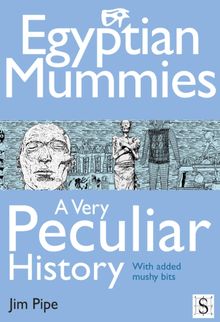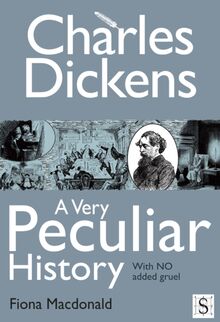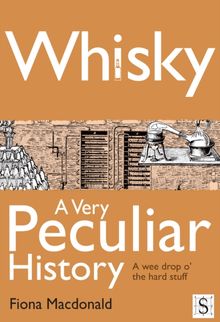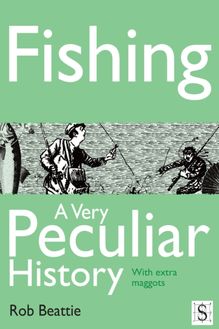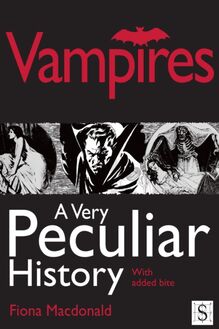-
 Univers
Univers
-
 Ebooks
Ebooks
-
 Livres audio
Livres audio
-
 Presse
Presse
-
 Podcasts
Podcasts
-
 BD
BD
-
 Documents
Documents
-
- Cours
- Révisions
- Ressources pédagogiques
- Sciences de l’éducation
- Manuels scolaires
- Langues
- Travaux de classe
- Annales de BEP
- Etudes supérieures
- Maternelle et primaire
- Fiches de lecture
- Orientation scolaire
- Méthodologie
- Corrigés de devoir
- Annales d’examens et concours
- Annales du bac
- Annales du brevet
- Rapports de stage
La lecture à portée de main
Vous pourrez modifier la taille du texte de cet ouvrage
Découvre YouScribe en t'inscrivant gratuitement
Je m'inscrisDécouvre YouScribe en t'inscrivant gratuitement
Je m'inscrisEn savoir plus
Vous pourrez modifier la taille du texte de cet ouvrage
En savoir plus

Description
Sujets
Informations
| Publié par | Andrews UK |
| Date de parution | 04 janvier 2012 |
| Nombre de lectures | 0 |
| EAN13 | 9781908759085 |
| Langue | English |
Informations légales : prix de location à la page 0,0300€. Cette information est donnée uniquement à titre indicatif conformément à la législation en vigueur.
Extrait
Title Page
GREAT BRITONS, A VERY PECULIAR HISTORY
With added stiff upper lip
Written by
Ian Graham
Created and designed by David Salariya
Publisher Information
First published in Great Britain in MMXI by Book House, an imprint of
The Salariya Book Company Ltd
25 Marlborough Place, Brighton BN1 1UB
www.salariya.com
www.book-house.co.uk
Digital edition converted and distributed in 2012 by
Andrews UK Limited
www.andrewsuk.com
Editor: Jamie Pitman
Assistant editor: Jodie Leyman
© The Salariya Book Company Ltd MMXI
All rights reserved. No part of this publication may be reproduced, stored in or introduced into a retrieval system or transmitted in any form, or by any means (electronic, mechanical, photocopying, recording or otherwise) without the written permission of the publisher. Any person who does any unauthorised act in relation to this publication may be liable to criminal prosecution and civil claims for damages.
Every effort has been made to trace copyright holders. The Salariya Book Company apologises for any omissions and would be pleased, in such cases, to add an acknowledgement in future editions.
Visit our website at
www.book-house.co.uk
or go to
www.salariya.com
for free electronic versions of:
You Wouldn’t Want to be an Egyptian Mummy!
You Wouldn’t Want to be a Roman Gladiator!
You Wouldnt Want to Join Shackleton’s Polar Expedition!
You Wouldn’t Want to Sail on a 19th-Century Whaling Ship!
Dedication
To Alex
IG
Quotes
‘I know I have the body but of a weak and feeble woman, but I have the heart and stomach of a king, and a King of England too...’
Queen Elizabeth I, addressing her troops at Tilbury, at the time of the attack on England by the Spanish Armada in 1588.
‘The English are not happy unless they are miserable, the Irish are not at peace unless they are at war, and the Scots are not at home unless they are abroad.’
George Orwell
‘If the British Empire and its Commonwealth last for a thousand years, men will still say, this was their finest hour.’
British Prime Minister, Winston Churchill, in a speech he made in 1940 to prepare the British people for the great struggle that was expected when Nazi Germany defeated France and turned its full might against Britain.
‘If you lead a country like Britain, a strong country which has taken lead in world affairs in good times and in bad, a country that is always reliable, then you have to have a touch of iron about you.’
British Prime Minister Margaret Thatcher
‘In the end it may well be that Britain will be honoured by historians more for the way she disposed of an empire than for the way in which she acquired it.’
Lord Harlech
‘England is a nation of shopkeepers.’
Napoleon Bonaparte
‘Rule Britannia! Britannia rule the waves; Britons never will be slaves.’
James Thompson
Introduction
History is peppered with Britons who have shown great leadership, an adventurous spirit, astonishing courage or brilliant creativity in science, medicine, engineering and the arts. It is impossible to include all of them in this book. The scientists, engineers, politicians, military leaders, kings and queens, entertainers, sports men and women, adventurers and others that have been featured are a personal selection of the many that could have been included.
An island nation
As an island nation, Britain has always looked outwards to the rest of the world. Many of the greatest Britons made their mark on the wider world, not just within Britain.
For centuries, Britain’s military power and its ability to defend itself depended on its navy. Generations of naval training produced seamen who not only protected the nation but also explored the rest of the world.
Britain’s naval power also enabled it to establish the biggest empire the world has ever seen. It was said that the ‘sun never sets on the British Empire’ , because British colonies and territories were spread around the whole world. On old maps, they are the parts of the world coloured pink. During the twentieth century, the days of empire ended. It was no longer acceptable for great powers to rule other countries that were claimed and conquered in a past age. Britain’s former colonies were granted independence. As a result, Britain is no longer one of the world’s superpowers.
Industrial Revolution
Most revolutions are violent events with a great deal of death and destruction, but one of the most important revolutions in history began in Britain during the eighteenth century without armies clashing or revolutionaries storming the capital. It was the industrial revolution. The invention of the steam engine in 1712 by Thomas Newcomen gave industry a reliable source of power for its machines that did not depend on wind or water. By the middle of the nineteenth century, Britain was the world’s leading industrial power. The first modern factories were built at this time. People began moving off the land and into cities to work in the new factories. The industrial revolution and the inventions it spawned transformed the whole world. The newly invented railways enabled people and goods to travel further and faster than ever before.
War and conflict
Britain and its military forces have been involved in dozens of wars at home and abroad. These conflicts have produced some exceptional national and military leaders and heroes. Two world wars also harnessed the genius of British scientists and inventors, who created new technologies, including the jet engine and electronic computers.
Invention
Britain has a great tradition of science, engineering and invention. British scientists including Robert Hooke and Sir Isaac Newton were at the forefront of unravelling the secrets of the universe. British doctors and scientists made important discoveries in medicine, including penicillin and the structure of DNA.
British engineers and inventors gave the world some of the most important inventions ever made, including the steam engine, railways, the telephone and television.
Kings and queens
Britain is a democratic nation run by a government elected by the people, but it is also a monarchy. Today, the monarchy is largely ceremonial. Kings and queens have ruled the British people in an almost unbroken line for more than a thousand years.
Honorary great Britons
One of the most famous Britons – St George, the patron saint of England – wasn’t British at all! He is thought to have been born in Cappadocia, in Turkey today, and then moved to Palestine. He became a Roman soldier in the Emperor Diocletian’s army. In AD 303, he protested against the emperor’s persecution of Christians and was executed at Lydda in Palestine. In legend, he is supposed to have slain a dragon, but this is a medieval invention. He was claimed as patron saint by England (and many other countries).
Several other important figures in British history were born elsewhere but made Britain their home. Anthony van Dyck (1599–1641) was a Flemish artist. He became the official court painter to King Charles I in 1623. He was granted some rights of citizenship, paid a pension and given a house by the king. He also married a lady-in-waiting to the queen.
Other honorary great Britons include George Frideric Handel (1685–1759), who spent half of his life in Britain composing music for King George I and his successor, George II. Karl Marx (1818–1883), a Prussian philosopher, lived in London from 1849 until his death.
His ideas and writings contributed to the development of communism. Prince Albert of Saxe-Coburg and Gotha (1819–1861), the husband of Queen Victoria, was born near Coburg, Germany. Albert, who was also Victoria’s cousin, led reforms in education, social welfare and slavery in Britain. He also took a great interest in the application of science to industry. He was responsible for the modern idea that the royal family should be separate from and above politics.
Fictional great Britons
Some Britons who are celebrated for their adventures and achievements never existed! Writers and film-makers have created and popularised many fictional British characters including King Arthur, Sherlock Holmes, Biggles, James Bond and Robin Hood.
King Arthur
The legend of King Arthur dates back more than a thousand years. Arthur’s right to the throne was established when he pulled a sword from a stone – something that could only be done by the true king. He is said to have lived in a castle called Camelot with his wife, Guinevere, and the Knights of the Round Table. The most famous knights were Sir Lancelot and Sir Galahad. Arthur was armed with a magical sword called Excalibur, which was given to him by a mysterious ‘Lady of the Lake’. He was assisted by a wizard called Merlin.
James ‘Biggles’ Bigglesworth
Biggles was a pilot and gentleman adventurer who featured in nearly 100 books written by W.E Johns (1893–1968). Biggles, like Johns, was a World War I pilot. He also went on to serve in World War II. The Biggles stories were written as exciting adventures for boys about Biggles’ war-time exploits and his work for the British Secret Service.
James Bond
The creation of World War II Intelligence Officer and novelist Ian Fleming (1908–1964), James Bond was a naval officer and spy, whose codename was 007. The Bond books have sold 100 million copies worldwide and were made into blockbuster movies in one of the most successful film franchises ever
-
 Univers
Univers
-
 Ebooks
Ebooks
-
 Livres audio
Livres audio
-
 Presse
Presse
-
 Podcasts
Podcasts
-
 BD
BD
-
 Documents
Documents
-
Jeunesse
-
Littérature
-
Ressources professionnelles
-
Santé et bien-être
-
Savoirs
-
Education
-
Loisirs et hobbies
-
Art, musique et cinéma
-
Actualité et débat de société
-
Jeunesse
-
Littérature
-
Ressources professionnelles
-
Santé et bien-être
-
Savoirs
-
Education
-
Loisirs et hobbies
-
Art, musique et cinéma
-
Actualité et débat de société
-
Actualités
-
Lifestyle
-
Presse jeunesse
-
Presse professionnelle
-
Pratique
-
Presse sportive
-
Presse internationale
-
Culture & Médias
-
Action et Aventures
-
Science-fiction et Fantasy
-
Société
-
Jeunesse
-
Littérature
-
Ressources professionnelles
-
Santé et bien-être
-
Savoirs
-
Education
-
Loisirs et hobbies
-
Art, musique et cinéma
-
Actualité et débat de société
- Cours
- Révisions
- Ressources pédagogiques
- Sciences de l’éducation
- Manuels scolaires
- Langues
- Travaux de classe
- Annales de BEP
- Etudes supérieures
- Maternelle et primaire
- Fiches de lecture
- Orientation scolaire
- Méthodologie
- Corrigés de devoir
- Annales d’examens et concours
- Annales du bac
- Annales du brevet
- Rapports de stage
